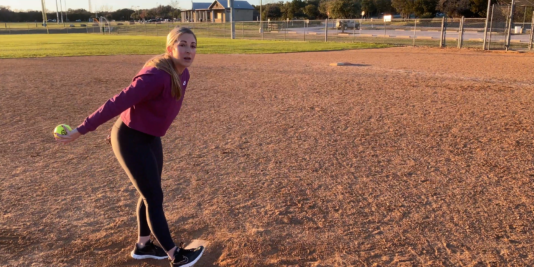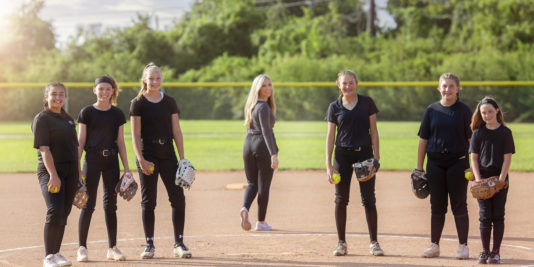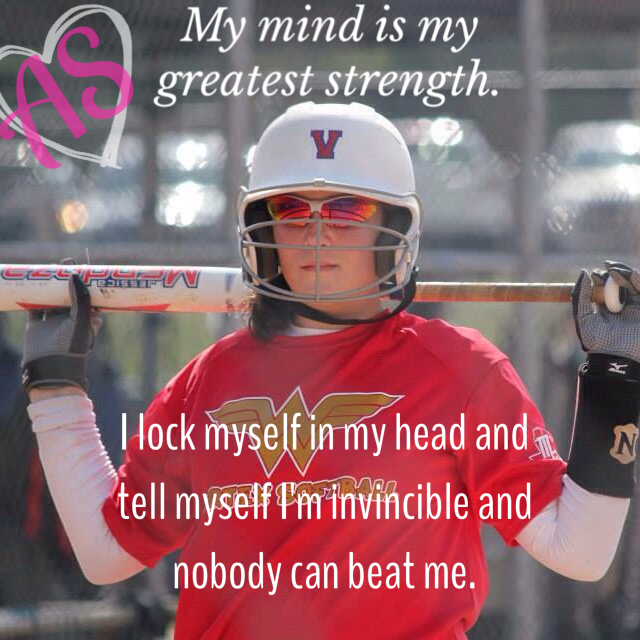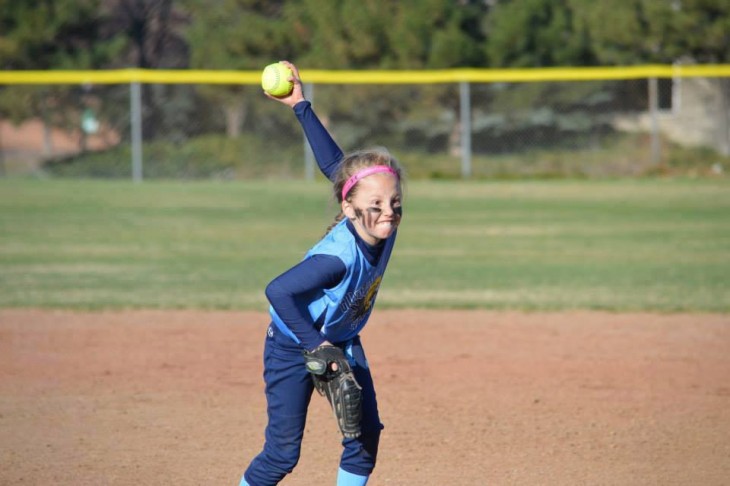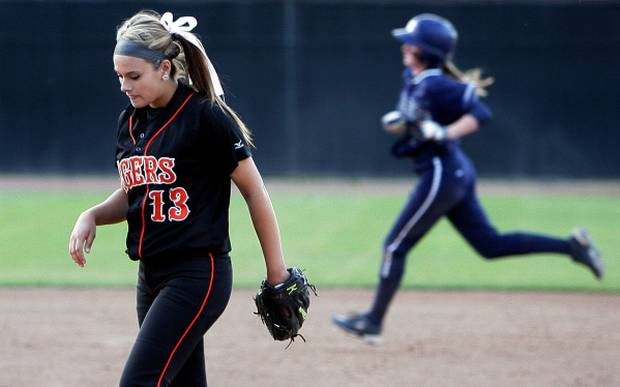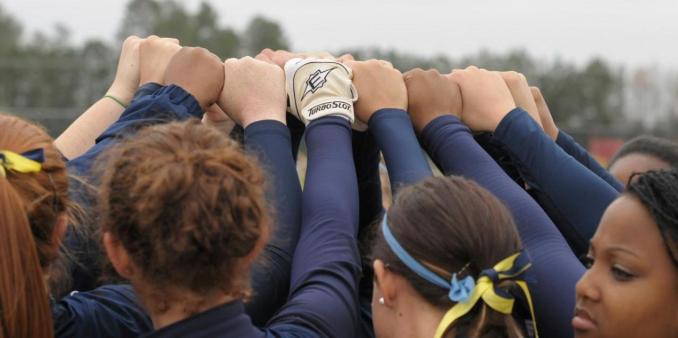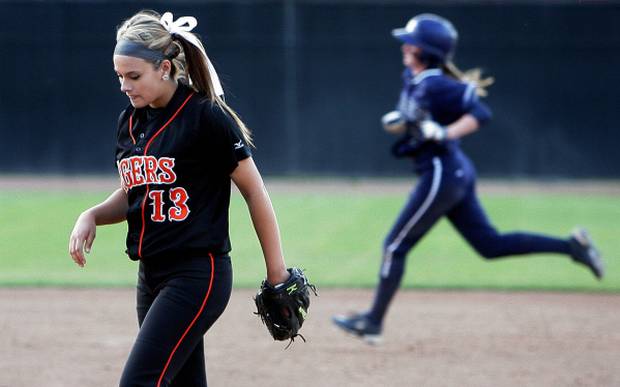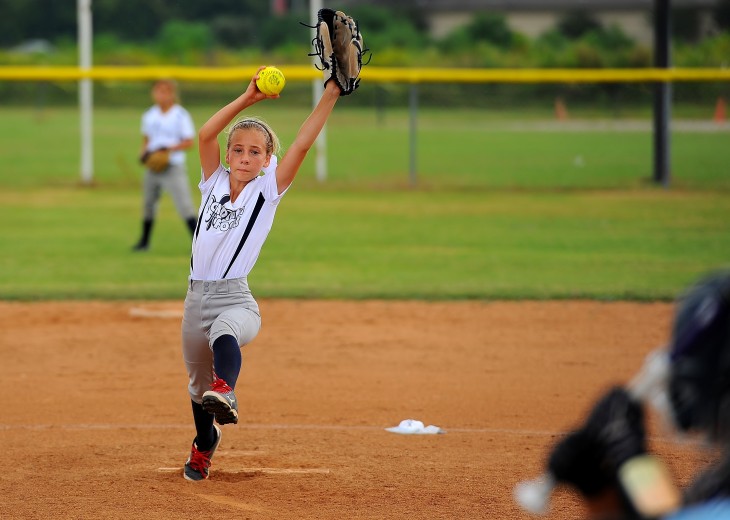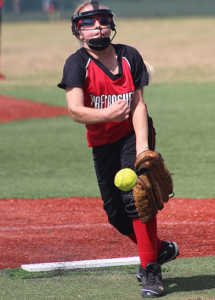I’m a firm believer in experience. There’s nothing like the experience of pitching or hitting in the “big game” or with the bases loaded, and the game is on the line. Your thoughts are rushing quickly through your mind, you are completely aware of what’s at stake and how the next pitch you throw, the next time you swing or the next ground ball you field can be a defining moment in an important game. In this moment, all eyes are on you, and believe me, you can feel it. The experience itself comes down to more of a mental state than a physical state. Your physical skills are there from the hours of practice and thousands of reps you have taken at your skill. However, your mental state will determine how your physical state is allowed to perform during the game at any point, especially those few defining moments in every game when it comes down to that one pitch. One of the biggest questions is how to help a player to be strong in that moment. A big part of that strength comes from drawing on past experience.
How are you going to handle your defining moment?
It’s hard to simulate this same sensation you get in the big moment in the game without actually living through it on the field itself. There’s really no practice that you can do to fully compare to the same feeling that is created when you are actually in that big moment with the ball in your hand. The only way to simulate it is to actually do it…multiple times. The more you do it, the more relaxed you can feel to be able to play to the highest of your ability without your muscles tightening up and thoughts overwhelming your brain in your head. The pressure you feel is as much a mental sense as it is a physical sense of feeling pressure and tightness throughout your whole body. I’ve felt it. Multiple times. It’s that adrenaline rush that you get before the game and during the game that never goes away and is what makes sports addicting. I want to be frank, if you’ve never been the pitcher in the circle or the hitter at the plate in that game-defining moment, you truly have NO IDEA what it feels like mentally to be present in that situation. You don’t have the experience. There may be things that you have been through that are similar, but it when it comes right down to it, the feeling that is created with the “big moment” is sometimes incomprehensible.
But it’s these moments that we all live for in all sports – as players and even as fans at the edge of our seats.
How do you deal with the pressure? You have to experience it. You have to breathe through it. You have to learn from it. You have to be confident that you can handle it. You have to recognize what it FEELS like, be in tune with your body and grasp how to cope with the tightness, the pressure and all of the intense energy that is surrounding that big moment. The more familiar you become with these feelings, the more you understand what it is like to tackle them and become victorious in that big situation. It’s in these situations where you give more thought to breathing and calming your brain and heart down than you do to actually how to throw a pitch or swing a bat. You practice experiences. You practice breathing. You practice how to keep your emotions under control when the game is on the line. The more you have at practicing this, the more you WANT to be the one in the key point in the game.
Experience in ANYTHING we do gives us confidence the more and more we perform an action, in a certain situation, under certain conditions. If you are bad at something (anything, no matter WHAT it is), the more you do it, the better you become at it, as your body and motor skills become more comfortable with handling the new skill you are trying to pick up. The skill in the “big moment” is practicing how to control your emotions, thoughts, and calmness. Even if you start as “good” at something with little to no experience, you will become GREAT at it the more and more you do it. We can see this in real life outside of sports in our careers or different hobbies that we take on. Sports are the same and even more pressure-filled because in a sport, everyone attending the game knows immediately if you failed or succeeded. You are out on a stage called a field, and all eyes are on you watching your physical performance and waiting to deem your physical performance as a success or a failure. Immediately after you perform a skill, every single person watching knows if you failed or succeeded. Think of a player giving up a home run – everyone watching knows that the pitcher just “failed” and the hitter just “succeeded,” or at least they think they know. Think of a basketball player and the eyes that are watching every shot taken. We all know as fans whether or not a player messed up when he/she took a shot based off of the physical result of the ball going in the basket or not. A job can be different than sports. Maybe only 1 person knows that you “failed” – your boss. Many times in a job, you aren’t out on a stage where literally every single person watching, or in the room, knows when you failed. In a softball game, if you strike out or have a homerun hit off of you, AT LEAST 20 people know if you failed or not (at least 9 on each team, plus a few coaches on each team). The thought of failing in front of people added creates pressure.
Okay, so I set the stage for you. After innings and innings of play, and numerous games, sometimes we forget what the “big moment” is all about and what it really feels like to be in that pressure situation – we take it for granted that a player should be good at handling the big moment. This especially happens because we, as coaches and the parents, are older and have either seen or been through those experiences many times ourselves, so we assume that the 11 or 12 year old should be better at dealing with it. Not the case! They are just babies, they are just learning and trying to get their feet underneath them. They are just getting a grasp at the physical part of the game to think about, and now they are having to think about this monumental mental side of it that can make or break them. To understand what is at stake in the experience, is almost as important as learning to understand and deal with the actual experience itself – from a support position as a parent or as a coach.
Everyone comes around in their own time. This is life. We all learn differently, we all experience differently.
Take walking for example (not the softball walking of 4 balls take your base, but the actual skills of walking as a baby) – an experience that all of us can draw from – one of our first physical skills we attempt to do. We got up, we fell. We got up again, we fell again. After days, maybe even weeks of getting up and trying to take that first step, we eventually stand a little longer. We eventually take one step, then maybe two steps, And before you know it, we are cruising all over the room and our parents can’t keep up with us. We had to experience each fall before we could actually get to the end result we wanted. Now, I imagine that standing for the first time or trying to walk for the first time is a bit uncomfortable. (I honestly can’t remember, but I’m just going off of a simple guess here) Your body is probably thinking what the heck is going on? What am I trying to do?
It’s new. You have to figure it out. You have to learn. You have to understand what you’re feeling and your muscles and brain are learning each step of the way (no pun intended). Each and every one of us didn’t all learn to walk in the exact same amount of time, or at the exact same point in our lives. Our parents were there supporting us, encoring us that we could do it. They believed in us, and they knew it was only a matter of time. We experienced failing to become the walkers we are today. We may not have walked exactly when our parents expected us to, but eventually we figured it out.
Playing in the “big moment” is the exact same way. It can feel and will feel uncomfortable.
Anything new feels uncomfortable. Experience will create a comfortability (just made up my own word there, but you get the point). We don’t get as many experiences in the “big moment” as we do when we were walking. When we were walking, we were working on that every single day of our lives. For the “big moment,” you MAY experience it once a weekend. Maybe you don’t experience it on a weekend of games at all. If someone is not experiencing different situations, then you cannot be upset with them for not being good at it. Our parents didn’t get mad at us when we couldn’t walk on our first try.
The more you can experience the pressure situations and the make or break moment, the better and better you will become at being able to handle it.
THE REACTION
Nobody wants to fail. Nobody likes to fail; but it’s the failing that can make us GREAT. That “failing” moment where a homerun is hit off of you or someone strikes you out should be looked at as a learning moment, not a failing moment. Where was that pitch she hit? Where could it have been? Where did she pitch you this at bat? What part of the plate was strike 3 on? Where do you think she will pitch you next at bat? What are you going to do the NEXT time so that you feel more equipped to have success than feeling like a failure from your last experience. Teach teach teach teach! When you react, don’t judge the experience, teach the experience.
No matter what age someone is at, especially a young girl, we don’t want to let someone down – especially in the big situation. I PROMISE this is the case. Some might not admit it, but I’m telling you it’s true – I know from experience. Most girls don’t want to let other people down more than they don’t want to let themselves down. Girls are looking for a reaction from their coaches and from their parents. Girls are pleasers. They don’t want to see a reaction that they let anyone down – especially someone important to them.
If you are a coach or a parent, what reaction are you giving when someone “fails” out on the field?
That instant reaction you are giving with your words, facial expressions or body language IS IMPACTING THE NEXT BIG MOMENT THAT PLAYER WILL PLAY IN. No girl fails on purpose – no chance, no way. When she looks to the dugout or into the stands, she is looking to see if she let you down. Yes you – the coach, the parents. If she did let you down, then you’re making it more about you than you are about her. Remember, it’s about those players wearing the uniform, learning every step of the way. They should never feel as if they are letting you down if they don’t make the plays that you think they are supposed to make.
If a girl is scared of a bad reaction, when the big moment comes, she will be drawing back on that experience in her mind from the last time it happened. Even if it is not consciously being thought about, I promise to you it is in the back of her mind. This is only going to make her TIGHTER in the big situation, not relaxed. The player that is in the positive, encouraging atmosphere and mindset will become the player that does better the more and more they get to experience the big situations because they will become more relaxed and more comfortable. These players will be able to understand and deal with those tight feelings and a brain that is running at 1000mph.
Sports are similar to how life works in all aspects. We do something, we fail, we learn. But in the same breath – we do something, we succeed, we learn. There’s a chance for both, but you have to allow the failing to teach you without effecting your confidence. Learn from your successes just like you learn from failing. More importantly, how people are reacting around you are teaching you how to feel about and how to feel in the defining moments of the game. The first thing you should look to if it looks like a player plays down when the pressure situation increases are her coaches and her parents. How do they react? What are they telling her after the failure? What do they look like when things don’t go exactly how they planned? Was there a certain situation that happened in the past where maybe the parents and coaches didn’t even know that they showed to the player that they let her down? I’m telling you — you want a player who can handle the big situations, then you want coaches and parents (authority figures) who react in a positive manner.
SEEK OUT THE EXPERIENCE
Experience is absolutely critical in the development of a player, especially at a young age up until high school. Don’t get me wrong, even in high school and college, experience is one of the most important things, but the experience the older you get becomes more about dealing with extra outside forces. The games start to mean more, the competition becomes tougher, the games become televised. Gaining experience and a mental edge at a young age is instrumental for gaining confidence in the big moment at the older ages when it matters even more. You can’t start from scratch one you get to high school and college. If too many poor, negative experiences and bad reactions are engrained in someone’s head in high school and in college, then it’s toughed to overcome them – similar to bad mechanics and poor muscle memory
It does no good to be on a really well known/best team in the area if you are sitting the bench watching other people get the experience – especially as a pitcher. In 10u, 12u and even moving into 14u, you’ve GOT to be getting experience in the circle and up at the plate. You have a few choices:
- Say you are the #2 or #3 pitcher on the team. You can stay on the well-known team, even though you aren’t the starter and keep practicing very hard to continue to get better. Stick it out for a year or two, BUT sign up for a local league and get pitching time. Yes, I know the competition isn’t as good, but I don’t care. You are getting mound time and you are practicing throwing to an opposing team while working hitting your spots and gaining command. This is a perfect place to improve confidence, get reps and work on some mechanical issues you are trying to get better at. PLUS, if you are staying on that team where you are the #2 or #3 pitcher on the team, you add to the competition to be the lead pitcher. Because you a re getting better, you are making the other pitchers better and there becomes more competition at your position. I actually did this, and I know from experience that it worked to my benefit. I wasn’t getting as much pitching time as 1 or 2 other pitchers on my select team in 12u, and me and my parents weren’t in denial about it. We knew that I needed to get better in order to earn more pitching time. So we signed up for a fall league to get more innings and more pitches thrown. To this day, I really think it’s one of the best ideas we came up with as a family. I got drastically better after that season because I was getting the experience I needed, and my results on my select team started to improve and eventually I got more and more time. Yes, it was a bit of a time crunch, and there were probably times I didn’t want to go, but I really feel like it helped out in the long run.
- You can change teams. I always recommend doing this at the end of the season and not in the middle. With this being said, I am not an advocate of team hoppers. However, I am an advocate for experience and how essential it is to have playing time at a young age. Experience, when it comes to time in the circle and number of at bats you are getting, is SOOO important.
- I DON’T THINK QUITTING IS AN OPTION IF SOMEONE LOVES TO DO SOMETHING. This will be an option that many people are quick to jump to. The only time I would encourage quitting is if the passion is not there for someone and they are not putting in the time and effort it takes to become solid player. There is a difference between not having passion and not being as talented as the other players VS having passion and being slower to catch your talent level up to speed.
If someone has the passion to do something, I am convinced they can and will achieve anything they put their mind to, and you can’t tell me otherwise. The people who don’t have passion end up quitting and weeding themselves out.
PRESSURE IS PRIVILEDGE
Have you ever heard this saying before? I love it. It reminds me of that movie, Remember The Titans. The older I get, the more I understand those 3 words. When you look at pressure as an opportunity, not a fear, the game becomes a bit more simple….not easier, but unescapably more simple. When you get more experiences to choose how you are going to handle different in game situations, you get more experience in choosing the right thoughts, and understanding which thoughts connect with which results. When the bases are loaded and the game is on the line be thinking, “I get to show everyone how good I am and how I am going to come through” not “I hope I don’t mess up and fail.” The experience of being in tight situations is all about controlling those thoughts. It’s easier to control those thoughts when you are in a positive, encouraging environment with your parents, coaches and teammates who support you.
Positive self talk should be something that is without a doubt engrained in players from a young age, especially when they are young and most impressionable. It should be discussed with players as much, if not more, than the actual mechanics of softball. Take time for it. It is so important in the development of players not just in their physical game, but in the part of the actual game itself when the “big moment” comes up and it’s time to shine.
It’s that positive self talk that will help you understand and realize that pressure really is a privilege and you should WANT to be the one with the bat or ball in your hands to come up to be the one for your team.
Realize this: We aren’t going to be perfect, especially in this game of failure we call softball. Every time you are in that pressure situation it’s a chance to prove that you’re in the right frame of mind. The “success” and “failure” comes from being in the right frame of mind and giving yourself a chance to have success when the big moment comes; it doesn’t always necessarily come with the outcome, despite what all eyes watching might think. When you take pressure off of the outcome and the fear of doing something wrong and not pleasing others, you give yourself the opportunity to have more success. The experiences you go through should be learning moments that are making you a better player. It shouldn’t feel like punishment or that you did something wrong as a player if you don’t come through in the clutch. It should be used as a moment to teach, so that when the moment presents itself again, you absolutely nail it.
Only YOU can define your moment. YOU create your opportunities – what are you going to do with them?

